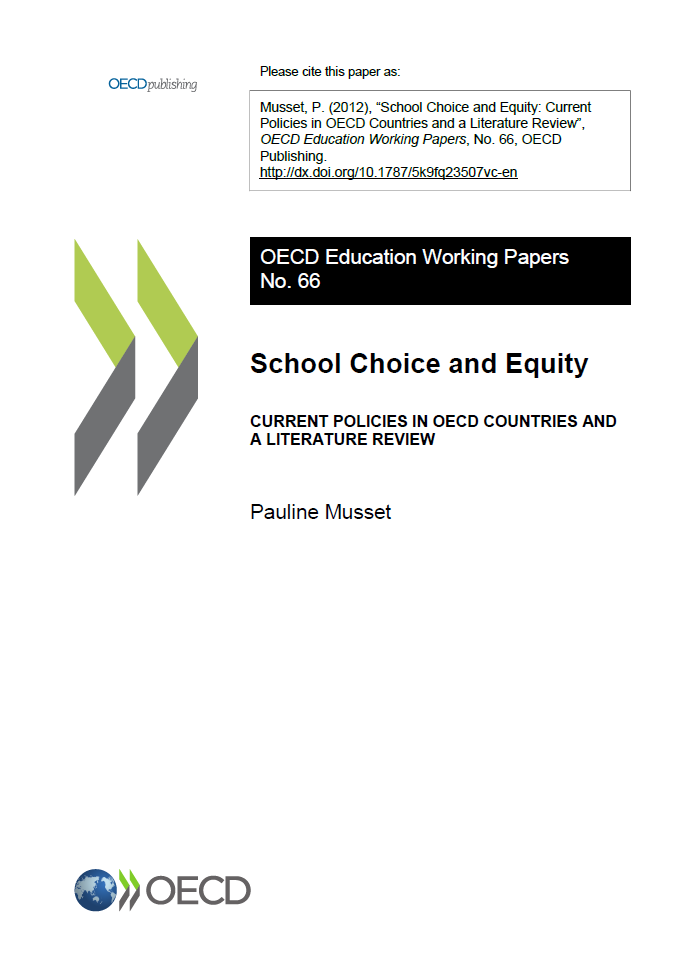School Choice and Equity : Current Policies in OECD Countries and a Literature Review
Abstract
In the last 25 years, more than two-thirds of OECD countries have increased school choice opportunities for parents, and it is perhaps one of the most ardently discussed issues in the current education policy debate. School choice advocates often argue that the introduction of market mechanisms in education allows equal access to high quality schooling for all: expanding school choice opportunities would allow all students – including disadvantaged ones and the ones attending low performing schools –
to change to better schools. Since school choice has always been available for well-off families through residential mobility and through enrolment in private schools, advocates suggest that expanding school choice to all, including low-income and minority students, will increase equity. Choice programmes can be perceived as leading to a general improvement in the quality of education, and fostering efficiency and innovation.
On the other hand, school choice critics suggest that school choice can exacerbate inequities, as it increases sorting of students between schools based on their socio-economic status, their ethnicity and their ability, and quality can become increasingly unequal between schools. They argue that it further advantages those who already have had a better start in life because of their parents. They also suggest that school choice reduces the unique potential of schools as social cohesion builders, as schools are further segregated by student characteristics. This literature review on school choice analyses the impact of choice schemes on students and on school systems focusing on equity. Reviewing the evidence can be difficult, as the literature is often
fragmented and inconclusive, and the political importance of this research often results in high-profile attention given to individual studies rather than systemically understanding collected from a larger empirical base (Berends, Cannata and Goldring, 2011).

